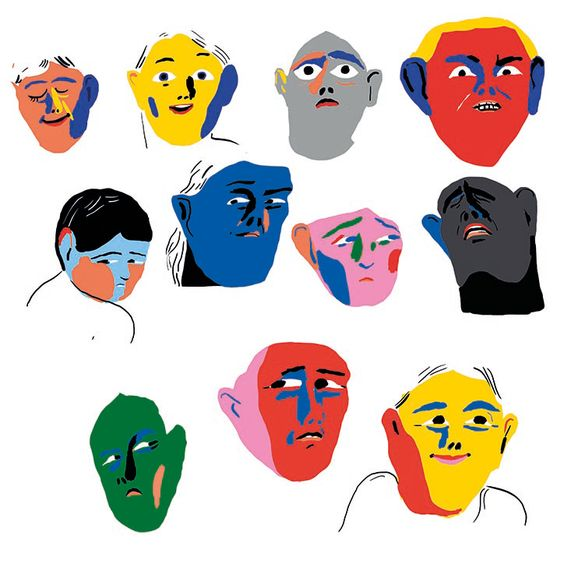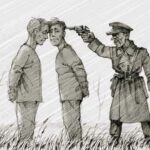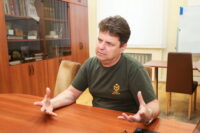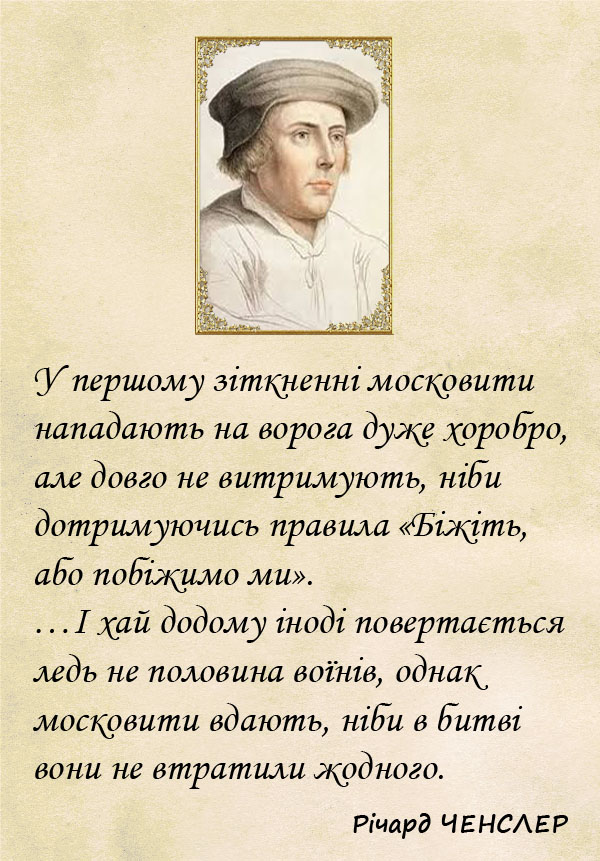
John Koenig is a graphic designer, illustrator, photographer, director and writer at the same time. Since 2006, he has been researching language and finding new words to describe complex emotions and feelings. In 2009, John created a site for new words, DictionaryofObscureSorrows.com, and in 2015, he had 23 words on his list. At the same time, they began to spread in the media and social networks.
This is how the “Dictionary of Hidden Sadness” appeared on YouTube. To his neologisms, John Koenig selects music, video and voice-over telling about the meaning of a term. These new words are created entirely by Koenig, but are based on his research into the etymologies and meanings of prefixes, suffixes, and roots of words from different languages. According to him, new terms for complex emotions are often based on feelings of existentialism and are designed to “fill a hole in a language.”
10 complex emotions we feel but don’t call:
ZENOSINE is a feeling that each subsequent year passes faster than the previous one. The word was formed from two names: the ancient Greek philosopher Zeno, who spoke of the stillness of time, and the goddess Mnemosyne, who embodied memory in ancient Greek mythology.
LIBEROSIS – the desire to become a child again, to feel carefree, to lose control of their lives and to worry less.
OPIA is a sensation that arises from direct visual contact with a person. You may get the impression that you are looking into an abyss, behind which there is a door that can tell you a whole story. It can also be a visual contact that gives a surge of energy.
CONDER is a sudden realization that everyone has a story. For example, it may be an understanding that every casual passerby lives the same difficult life as we do: with ambition and routine, friends and daily worries.
VEMODALEN is a feeling of fear that everything has already been done to us. Initially, the author used this term to describe the disappointment of photographers, who will no longer be able to take a picture of something amazing, because there are already thousands of identical photos.
ONISM is a feeling of how little our personal experience is in the context of the whole world. And also the feeling that a person is stuck in one body in one place and at one time.
ZHUSKA is a hypothetical conversation that could be. In this state, the person obsessively scrolls through his head and analyzes what he could say in a particular situation, and also imagines what the conversation would be like if he behaved differently and said other words.
ENUEMENT is the desire to return to the past to tell oneself about the future. This happens when a person becomes an adult or gets some new experience and thinks that it would be good to know this earlier (as a child or at least a few years ago). At such moments there is a desire to turn back time and give yourself advice.
PARO is a feeling that everything we do is wrong. The term came from the expression par zero. It means a hole in the golf course, which no matter how you hit, but it will be too late, because the player is behind, everything is not going as it should.
TRAMSPRINHA is the temptation to leave your career and become, for example, a shepherd in the mountains, following your flock between pastures with a shepherd and a gun, watching the storms at dusk from the door of a small cabin. In such desires and dreams, people take a break from daily life to return to their responsibilities and work.
Why do we experience complex emotions?
Experiencing complex emotions is a completely natural process, such mental activity is inherent in man. In addition, the protective mechanisms of the psyche cause situations when, for example, a person experiences certain feelings and states incomprehensible to him, because their full meaning is too complex (and sometimes impossible) for the psyche, and what is available for experience and awareness is only part of the mental process. These are unresolved internal conflicts, repressed or split feelings, a certain traumatic experience that can be triggered by some trigger.
This is largely due to anxiety and the inability to assimilate the acquired mental experience, or to the fact that it is difficult or painful for a person to accept some unpleasant aspects of reality. Often such complex emotions as, for example, the mentioned feeling that I am always doing everything wrong – a sign of early traumatic experience, which is not available for full awareness and experience, but is felt in such allegedly difficult to understand mental states.
In addition, our psyche does not exist separately from others, that is, all experiences and emotions are born in contact. Mental processes are not purely individually conditioned; often our experiences are part of a larger narrative: first of all, family dynamics, as well as a reflection of great social processes. For example, certain unforeseen traumas in the previous generation show up in the next generation in the form of unexplained symptoms, complex emotions, or habitual (and often unconstructive) patterns of behavior.
In general, these complex emotions are more accessible to awareness and understanding, when a person pays attention to his or her mental processes, reflects them, when his or her psyche becomes able to “digest” complex mental material. At the same time, it is impossible to fully understand and interpret all aspects of complex experiences, because the volume of unconscious mental processes exceeds our ability to interpret them.
April 20, 2021

























































Залишити відповідь